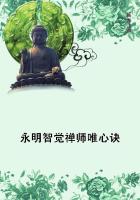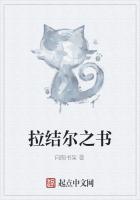SUCCESSIONS.-- II.INTER VIVOS.
The principal contracts known to the common law and suable in the King's Courts, a century after the Conquest, were suretyship and debt.The heir, as the general representative of his ancestor's rights and obligations, was liable for his debts, and was the proper person to sue for those which were due the estate.By the time of Edward III.this had changed.Debts had ceased to concern the heir except secondarily.The executor took his place both for collection and payment.It is said that even when the heir was bound he could not be sued except in case the executor had no assets. But there was another ancient obligation which had a different history.I refer to the warranty which arose upon the transfer of property.We should call it a contract, but it probably presented itself to the mind of Glanvill's predecessors simply as a duty or obligation attached by law to a transaction which was directed to a different point; just as the liability of a bailee, which is now treated as arising from his undertaking, was originally raised by the law out of the position in which he stood toward third persons.
After the Conquest we do not hear much of warranty, except in connection with land, and this fact will at once account for its having had a different history from debt.The obligation of warranty was to defend the title, and, if the defence failed, to give to the evicted owner other land of equal value.If an ancestor had conveyed lands with warranty, this obligation could not be fulfilled by his executor, but only by his heir, to whom his other lands had descended.Conversely as to the benefit of warranties made to a deceased grantee, his heir was the only person interested to enforce such warranties, because the land descended to him.Thus the heir continued to represent his ancestor in the latter's rights and obligations by way of warranty, after the executor had relieved him of the debts, just as before that time he had represented his ancestor in all respects.
If a man was sued for property which he had bought from another, the regular course of litigation was for the defendant to summon in his seller to take charge of the defence, and for him, in turn, to summon in his, if he had one, and so on until a party was reached in the chain of title who finally took the burden of the case upon himself.A contrast which was early stated between the Lombard and the Roman law existed equally between the Anglo-Saxon and the Roman.It was said that the Lombard presents his grantor, the Roman stands in his grantor's shoes,--Langobardus dat auctorem, Romanus stat loco auctoris. Suppose, now, that A gave land to B, and B conveyed over to C.If C was sued by D, claiming a better title, C practically got the benefit of A's warranty, because, when he summoned B, B would summon A, and thus A would defend the case in the end.But it might happen that between the time when B conveyed to C, and the time when the action was begun, B had died.If he left an heir, C might still be protected.But supposing B left no heir, Cgot no help from A, who in the other event would have defended his suit.This no doubt was the law in the Anglo-Saxon period, but it was manifestly unsatisfactory.We may conjecture, with a good deal of confidence, that a remedy would be found as soon as there was machinery to make it possible.This was furnished by the Roman law.According to that system, the buyer stood in the place of his seller, and a fusion of the Roman with the Anglo-Saxon rule was all that was needed.
Bracton, who modelled his book upon the writings of the mediaeval civilians, shows how this thought was used.He first puts the case of a conveyance with the usual clause binding the grantor and his heirs to warrant and defend the grantee and his heirs.He then goes on: "Again one may make his gift greater and make other persons quasi heirs , although, in fact, they are not heirs, as when he says in the gift, to have and to hold to such a one and his heirs, or to whomsoever he shall choose to give or assign the said land, and I and my heirs will warrant to the said so and so, and his heirs, or to whomsoever he shall choose to give or assign the said land, and their heirs, against all persons.In which case if the grantee shall have given or assigned the land, and then have died without heirs, the
grantor and his heirs begin to hold the place of the first grantee and his heirs, and are in place of the first grantee's heir (pro herede) so far as concerns warranting to his assigns and their heirs according to the clause contained in the first grantor's charter, which would not be but for the mention of assigns in the first gift.But so long as the first grantee survives, or his heirs, they are held to warranty, and not the first grantor." Here we see that, in order to entitle the assign to the benefit of the first grantor's warranty, assigns must be mentioned in the original grant and covenant.The scope of the ancient obligation was not extended without the warrantor's assent.But when it was extended, it was not by a contrivance like a modern letter of credit.Such a conception would have been impossible in that stage of the law.By mentioning assigns the first grantor did not offer a covenant to any person who would thereafter purchase the land.If that had been the notion, there would have been a contract directly binding the first grantor to the assign, as soon as the land was sold, and thus there would have been two warranties arising from the same clause,--one to the first grantee, a second to the assign.But in fact the assign recovered on the original warranty to the first grantee. He could only come on the first grantor after a failure of his immediate grantor's heirs.The first grantor by mentioning assigns simply enlarged the limits of his grantee's succession.The assign could vouch the first grantor only on the principles of succession.















